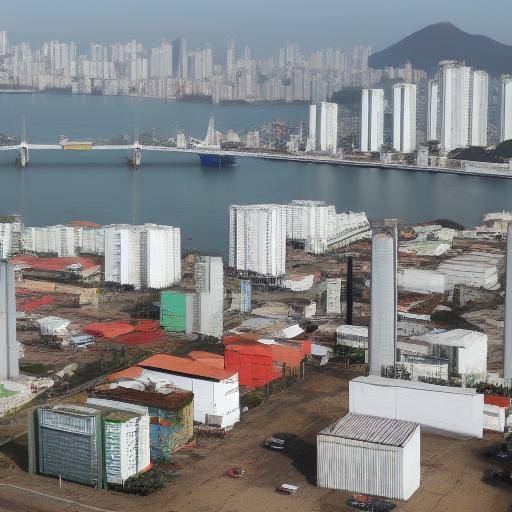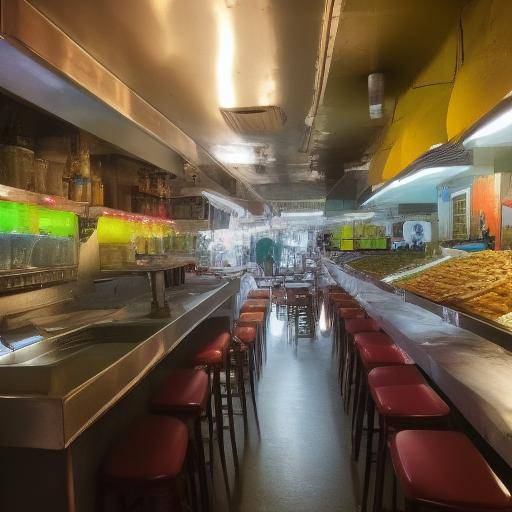
The city of Rio de Janeiro, located on the Atlantic coast of Brazil, has long been an economic and cultural centre in South America. With its impressive natural beauty, vibrant cultural scene and significant presence in the Brazilian economy, Rio de Janeiro offers various opportunities for trade, industry and economic development. In this article, we will thoroughly explore economic opportunities in Rio de Janeiro, focusing on trade, industry and economic development, and provide key information, detailed analysis and practical advice for those interested in capitalizing on these opportunities.
History and Background
Rio de Janeiro has a rich history that dates back to its discovery by the Portuguese in 1502. The city became the capital of the United Kingdom of Portugal, Brazil and Algarves in 1763, playing a crucial role as an economic and political center during the Portuguese domain. After Brazil's independence in 1822, Rio de Janeiro continued to be the capital until Brasilia assumed that role in 1960.
During the nineteenth and twentieth centuries, the city experienced significant growth, especially with the rise of coffee, which marked its economic expansion. In addition, Rio de Janeiro is known for its vibrant culture, including the famous Carnival celebration and its impressive statue of the Christ Redeemer at the top of Mount Corcovado.
In the industrial landscape, Rio de Janeiro has been an important centre for oil extraction, with the presence of the state company Petrobras, as well as an important node for the naval and construction industry. These historical backgrounds have laid the foundations for current economic opportunities in the city.
Analysis in Deep
Today, Rio de Janeiro remains an important trade and business centre in Brazil, with a diverse economy ranging from the tourism industry to oil and gas production. The city is home to a series of industrial parks and special economic zones that offer opportunities for foreign investment and business expansion.
However, despite these opportunities, the city also faces significant challenges, such as economic and social inequality and public insecurity. These challenges may pose obstacles to businesses and investors, but they also raise opportunities to address unmet needs in sectors such as housing, education and health.
Comprehensive review
The economic diversity of Rio de Janeiro is reflected in its key sectors, ranging from tourism and hospitality to the entertainment and technology industry. The city houses a number of innovative companies and startups that are contributing to economic growth and job creation.
On the other hand, the oil and gas industry remains a fundamental pillar of the Rio de Janeiro economy, with important opportunities for companies related to extraction, refinement and energy distribution. These sectors offer long-term investment opportunities and contribute significantly to the sustainable economic development of the region.
Comparative analysis
By comparing Rio de Janeiro with other regions of Brazil, it is clear that the city offers a unique combination of natural resources, developed infrastructure and a qualified workforce. These factors make it an attractive place for investments in a wide range of sectors, from tourism and technology to manufacturing and engineering.
Compared to other economic centers in Latin America, Rio de Janeiro stands out for its cultural diversity, its exceptional natural environment and its strategic position as a gateway to the South American market. This makes it a privileged place to establish commercial operations and seek new opportunities for growth.
Practical Tips and Accessible Recommendations
For those interested in taking advantage of economic opportunities in Rio de Janeiro, it is crucial to conduct a comprehensive market and competition analysis, evaluate local regulations and consider economic and social implications. In addition, it is essential to establish strategic relations with key actors, such as local business associations, government agencies and service providers.
Industry Perspectives and Expert Reviews
According to industry experts, opportunities in Rio de Janeiro range from the expansion of tourist companies to investment in sustainable infrastructures. Current trends indicate continued growth in sectors such as information technology, renewable energy and real estate development.
In addition, business leaders emphasize the importance of understanding local culture and business dynamics by establishing operations in Rio de Janeiro. Strategic partnerships with local businesses and commitment to ethical business practices are critical to long-term success in the region.
Case Studies and Practical Applications
Several case studies highlight the success of companies that have capitalized on opportunities in Rio de Janeiro. From architecture firms that have led sustainable urban development projects to technology companies that have innovated in environmental management solutions, these success stories demonstrate the potential of the region for business growth.
At the same time, it is important to consider the challenges faced by these companies and how they have overcome obstacles by adapting to local dynamics and seeking strategic partnerships. These cases offer valuable lessons for those seeking to enter the Rio de Janeiro market.
Future Trends and Predictions
Current trends indicate continued growth in key sectors of the Rio de Janeiro economy, supported by investments in infrastructure, technological innovation and sustainable development. Long-term predictions suggest that the city will remain a centre of economic opportunities in South America, with a growing focus on sectors such as the digital economy, sustainable mobility and responsible tourism.
Conclusion
In short, economic opportunities in Rio de Janeiro are varied and dynamic, and offer fertile ground for trade, industry and economic development. In understanding the history, current situation and future prospects of the region, stakeholders can capitalize on these opportunities in a strategic and sustainable manner.
FAQs
What are the most prominent economic sectors in Rio de Janeiro?
Rio de Janeiro highlights in sectors such as tourism, the oil industry, information technology and real estate development.
What challenges do companies looking to establish themselves in Rio de Janeiro face?
Some challenges include government bureaucracy, public security and competition in consolidated sectors.
What is the current situation of the economy of Rio de Janeiro?
The economy of Rio de Janeiro has experienced ups and downs, but investments in key sectors are generating new growth opportunities.
What are the long-term growth prospects for Rio de Janeiro?
Perspectives indicate sustainable growth, especially in sectors related to technology, sustainability and responsible tourism.
What key recommendations would offer companies interested in establishing operations in Rio de Janeiro?
A thorough analysis of the local market, strategic relationships with key actors and commitment to ethical business practices is essential.
What is the role of the government in promoting economic opportunities in Rio de Janeiro?
The government plays a crucial role in implementing policies that encourage investment, innovation and sustainable development in the region.
In conclusion, Rio de Janeiro offers a prosperous scenario for economic and business growth, and with a strong understanding of its opportunities and challenges, companies and investors can successfully capitalize on the potential of this dynamic region of Brazil.
























